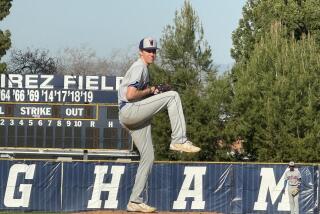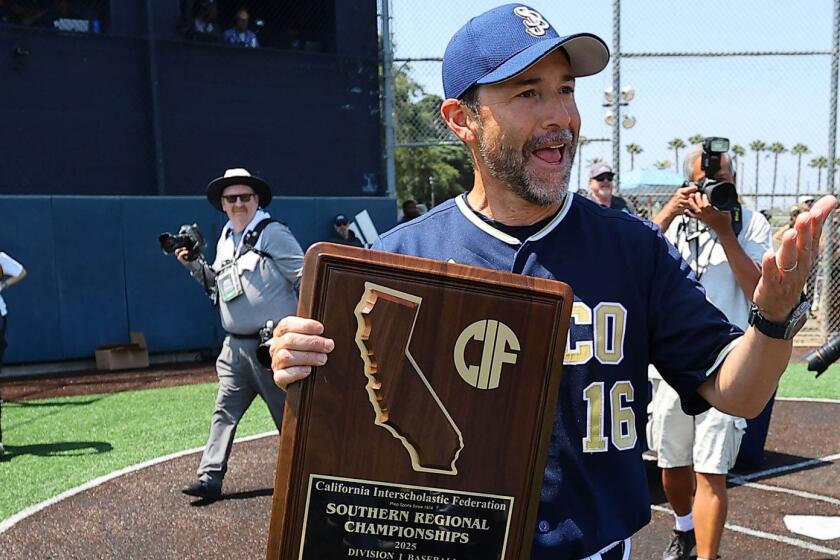Graduation Rates Low for Baseball Teams
- Share via
A majority of the nation’s best college baseball teams are striking out when it comes to graduating their players, according to a study released Wednesday.
Eleven of the 16 teams competing in NCAA Super Regionals graduated less than 50% of their players, based on NCAA statistics used in the study conducted by the Institute for Diversity and Ethics in Sport at the University of Central Florida.
Long Beach State was the worst, with a graduation rate of 5%. Cal State Fullerton was the fourth worst at 24%, and Stanford had the highest rate at 79%. Researchers reviewed 1995-96 graduation rates over six years, using a four-year average.
Sports sociologist Richard Lapchick, author of the report, called the results “deeply disturbing.”
“College baseball joins basketball and football as sports where playing the game far outweighs studying in the classroom,” Lapchick said in a statement.
But representatives from Long Beach and Fullerton defended the academic integrity of their programs, saying results of the study are misleading because they don’t take into account players who earn their degrees after transferring to other schools, and those who take longer than six years to finish their educations after starting pro careers.
“I give it very little credence,” Long Beach Athletic Director Bill Shumard said of the study. “It’s such a minimal representation of our entire student-athlete population that it doesn’t reflect the success that we’re having.”
Fullerton Coach George Horton said baseball deals with different circumstances than most college sports, making it more difficult to perform well in such academic surveys.
“We’re embarrassed by [the findings]; we wish it was a higher percentage,” Horton said. “However, our sport makes it a challenge to grade out very high in the six-year period that the NCAA uses for this census.”
Horton said the length and time commitment of the baseball season, participation in summer leagues and the major league draft are key factors in limiting the percentage of college players who earn their degrees in six years.
As of Wednesday afternoon, Horton said 10 Fullerton players had been drafted, an annual occurrence for the successful Titan program. College players are eligible for the draft when they get within 45 days of their 21st birthday, usually after their junior seasons.
“I’m not making an alibi, but it is really difficult to look good in an academic census if you’re a successful baseball program,” Horton said.
The study found that 183 of the 286 Division I baseball programs graduated fewer players than the NCAA’s overall student-athlete graduation rate of 59%.
More to Read
Go beyond the scoreboard
Get the latest on L.A.'s teams in the daily Sports Report newsletter.
You may occasionally receive promotional content from the Los Angeles Times.










